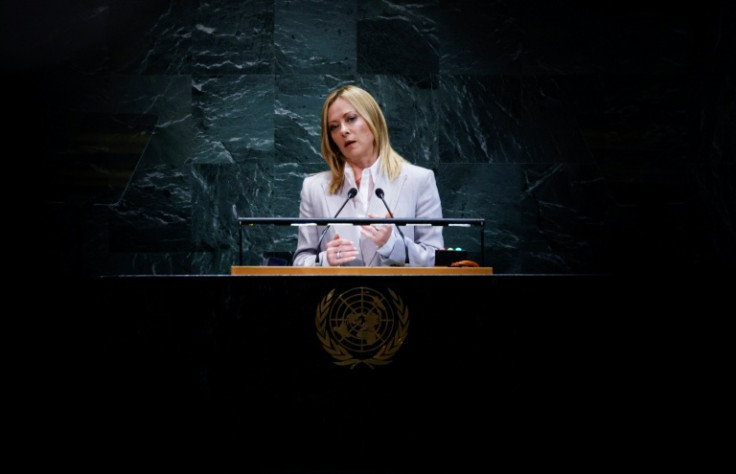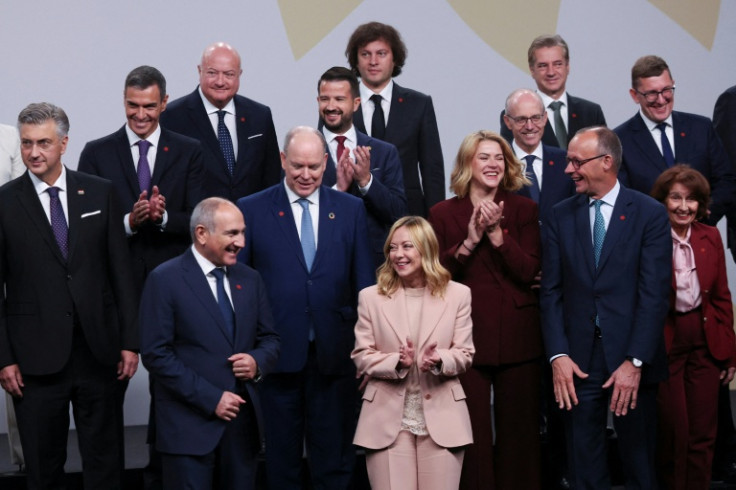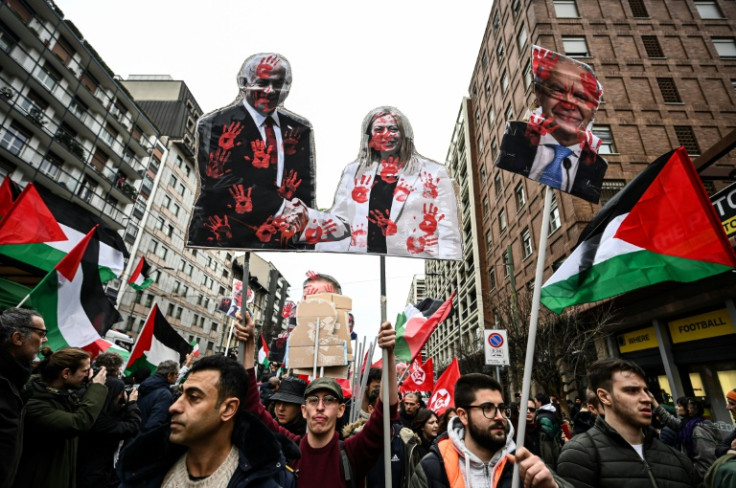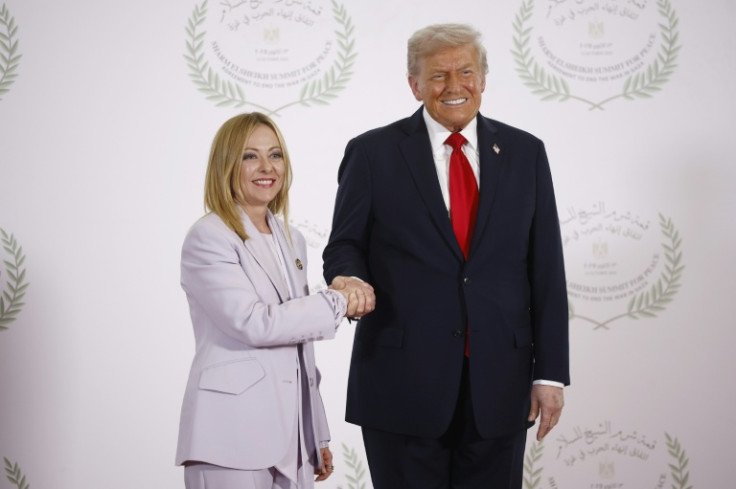Serious, Popular, Besties With Trump: Italy's Meloni Marks Three Years

Italian Prime Minister Giorgia Meloni marks three years in office this week with her far-right party more popular than ever, her government remarkably durable and the economy stable, if not exactly booming.
"She's a serious person," said Giulia Devescovi, a 31-year-old doctor who joined a rally with hundreds of supporters of Meloni's Brothers of Italy party in Florence earlier this month.
"She's perhaps one of the best prime ministers since Silvio Berlusconi," she told AFP among a sea of Brothers of Italy flags.
Meloni is way off the late Berlusconi's record of nine years as prime minister, but her coalition stands out for its longevity among the 70-odd post-war governments in Italy.
Her party tops opinion polls with support levels consistently above the 26 percent it secured to win 2022 elections, which saw Meloni installed as Italy's first woman prime minister on October 22 that year.
In three regional elections in recent weeks, her party increased its support, even in Tuscany, a bastion of the left.
Headlining the campaign event in the picturesque Piazza San Lorenzo in central Florence, Meloni railed at the left who she said were happy to see Italy confined to junior partner to EU giants France and Germany.
She particularly noted the economic progress of her indebted country, emphasising that borrowing costs are now lower than those of France.
"A leading nation like Italy doesn't act as anyone's spare tyre," she declared to cheers and applause from the crowd.
As a stateswoman, Meloni appears to have a seat at every table, almost a regular at the White House and recently the only woman leader to attend the signing of the Gaza ceasefire in Egypt.
There, US President Donald Trump interrupted a speech on his peace efforts for the Middle East to praise Meloni as "incredible", a "very successful politician" and a "beautiful young woman".
"Italians are proud of the way she represents them on the international stage. And she communicates brilliantly," noted one European diplomat.
In Garbatella, the working-class neighbourhood of Rome where Meloni grew up, local resident Martina Ladina agreed.
"When she speaks with the other heads of state, she speaks all these languages -- she manages to stand up to the men," the 36-year-old told AFP last week.
"She's got balls."
For Lorenzo Pregliasco, founder of the YouTrend polling institute, the prime minister's diplomatic "activism" has "consolidated her image as leader" while "she has not suffered any major slip-ups".
On the domestic front, too, he noted that she has not made major changes that might alienate her electorate.
"I don't think it's a contradiction that doing little in government is accompanied by stable support -- I believe it's one of the reasons," Pregliasco told AFP.
Irregular immigration -- a key campaign issue for Meloni and her allies -- is down, but the government has also ramped up the number of visas for non-EU legal workers.
Rome has cut taxes, toughened penalties for protesters and has taken steps on judicial reform, but has yet to confront the structural issues that many believe hold Italy back.
Surveys show that Italians are most concerned about purchasing power, with wages stagnating.
Another major complaint is the state of the public health system, investment in which has not kept pace with inflation.
Italy hopes its deficit will fall within EU limits this year, but debt remains an eye-watering 135 percent of gross domestic product.
And growth is forecast to be just 0.5 percent this year, despite Italy having already received 140 billion euros ($163 billion) under the EU's post-Covid recovery plan, with more expected by 2026.
"Look, we haven't performed miracles," Meloni acknowledged in Florence, but insisted that "Things are getting better."
Pregliasco noted the solidity of Meloni's coalition, which includes the far-right League of Matteo Salvini and Berlusconi's conservative Forza Italia.
This contrasts with the divided opposition, represented by the left-wing Democratic Party and the Five Star Movement.
"They don't necessarily love Giorgia Meloni" but "a significant portion of Italian voters don't see any truly credible alternatives," the analyst said.
The PD and Five Star have been cooperating more, fielding joint candidates in elections -- and recently have sought to harness waves of anger over Gaza.
Hundreds of thousands of people have taken to the streets in recent weeks, demanding Meloni take a tougher line on Israel over its actions in Gaza, and for Italy to join other European countries in recognising a Palestinian state.
Back in Garbatella, there was no love for Meloni among locals Maria, Mirella and Lucrezia, who were happy to chat with AFP as long as they did not have to give their surnames.
"I voted for her once... I wouldn't vote for her now. She's a very smart girl but in practice she hasn't done much," said Maria, 68, sitting on a bench with her friends.
Mirella, 62, didn't mince her words: Meloni "is a big fascist. She says she isn't, but she is."
Lucrezia, 58, complained about high taxes, the straining public healthcare system and a lack of police on the streets.
"But she has gorgeous earrings," she quipped.
bur-ar/ide/giv/cc



© Copyright AFP 2026. All rights reserved.





















